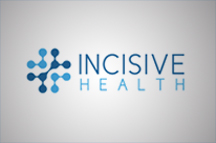 NHS' 70th 'birthday present' is an opportunity for healthcare comms professionals but there is no room for sentimentality, writes Sarah Winstone.
NHS' 70th 'birthday present' is an opportunity for healthcare comms professionals but there is no room for sentimentality, writes Sarah Winstone.
As the NHS reaches 70, we are rightly celebrating the world’s largest publicly funded health service. The strides made in scientific discovery. The prevention programmes and treatments that have reduced premature mortality. We read stories of babies born in July 1948 with justifiable pride in our NHS, free at the point of need, supporting us from cradle to grave.
But pride can easily give way to sentimentality and nostalgia for the good old days, whether they existed or not.
Ten years on from the founding of the NHS, its architect Aneurin Bevan highlighted unforeseen demand, recruitment difficulties and run-down buildings. Sound familiar?
Missed targets, holes in finances and poor staff morale are not new. But they are indisputable evidence that the NHS is struggling today and unfit for the future.
The Government is responding to well-founded public concern at pressures and clear public support for increased funding with the long-term funding settlement.
Squabbling over whether this "birthday present" is generous or stingy is pointless. In the next few months, healthcare advocates need to focus on the long-term plan for the NHS.
Defining and delivering the long-term plan will take ideas, enthusiasm and energy, with a coalition of support from across the NHS and the wider healthcare community. Hence NHS England CEO Simon Stevens’ announcement of a new ‘NHS Assembly’ to advise on implementation of the NHS Plan.
There will be no shortage of ideas. The key question for healthcare communicators will be how to get them to stick.
The first task will be demonstrating that the NHS is heading into recovery. Eliminating deficits and delivering on iconic performance indicators of A&E attendances, cancer waiting times and elective treatment will be no easy feat.
Policymakers and the public need to hear a message of reassurance: no more emergency bailouts needed. Healthcare professionals need room to breathe and headspace to think.
The second task will be designing structures and mechanisms to encourage closer working across hospital, community and social care. Some rewiring will be necessary, but legislation will be unpalatable to officials grappling with the constraints of the hung Parliament and Brexit.
Advocates need to ensure NHS staff and patients are engaged in and feel ownership of planned changes, particularly where they involve new ways of working or disruptive technologies.
The third task will be communicating the change we want to see in a meaningful way. Too often we talk abstractly about ‘the system’ using language with little relevance to people’s own experience of health. Change needs to be explained in terms of the impact on mental health, cancer or stroke.
We should be proud of the NHS and celebrate all that it has achieved. But sentimentality and rose-tinted spectacles will not serve patients well. Let’s face up to the future, roll up our sleeves and support the NHS to serve the patients of tomorrow.
Sarah Winstone, Founding Partner














